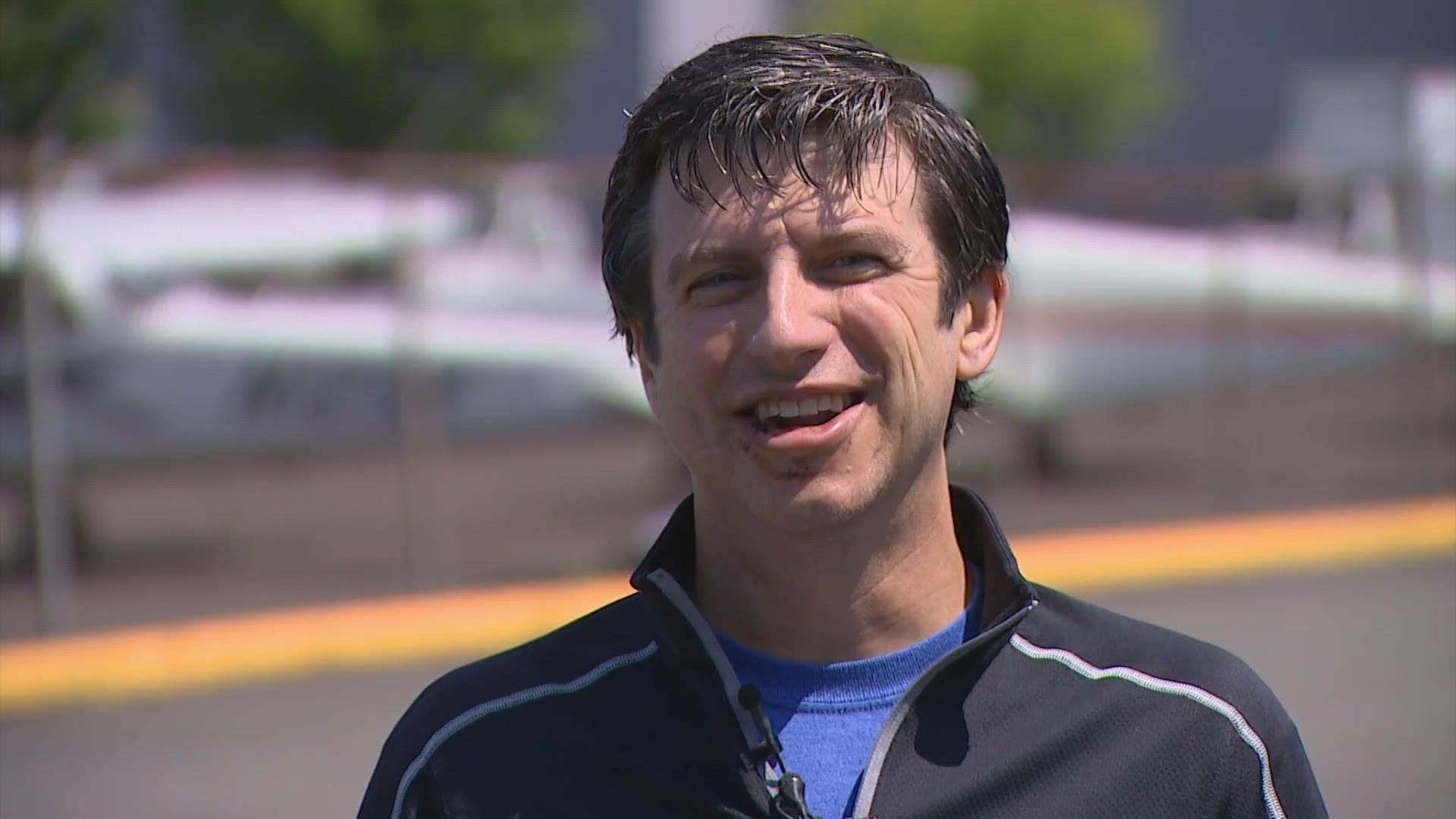SEATTLE — The pilot of the plane that crashed into Elliott Bay on Thursday said an engine failure forced him to land his Cessna.
"Once you get into one of these scenarios, your first thought is, Where am I going to put this thing where it's safe?"
It was a decision pilot Brendan Ross had 20 seconds to make.
“So, I knew Alaskan Way was going to hit people on the ground and I really didn't want to do that, so it left the waterfront," said Ross. When the engine on his Cessna stopped, the power faded out.
Many people had a front-row seat, sending in video from all angles and calling 911. People on the land say it took a while to register that a plane had crashed because of how smoothly it came down.
"It was a wild sight, seeing the water rushing up the windscreen. Not something you would normally see," Ross said.
The pressure was too strong to open the door.
"I kind of finished shutting down the best I could to try and minimize any fuel leaking into the water, I opened up a window so the water could rush in and the pressure could equalize," said Ross.
He said he held on to the wing of the plane before it went down, “It was time to swim for shore and by that time some boaters that were nearby were able to get to me."
A man who was on his boat with friends saw the crash and acted fast.
"As soon as it hit the water I thought that it was an emergency and we needed to act very fast and decided to hightail it to the crash site,” said Brent Breslin, who was on his boat in Elliott Bay with his three friends. They threw a line to Ross.
“Everybody just responded in a way that was going to get this guy out of the water and that's all we were thinking at the time," said Breslin.
Meanwhile, Ross' wife, Annabell, saw the headlines of a plane crash.
"I mean just hearing his voice I could tell he was going to be OK, it sounded like he'd done everything right," she siad.
With 1,500 flight hours and being a flight instructor himself, Ross says being prepared saved his life.
"That was about as well as it could have gone in terms of minimizing damage to the plane, to other people and I think the worst of it is to my face," said Ross.
Ross started out as an air traffic controller and in two weeks he will be flying for the airlines. He said this won’t stop him from flying, "I got some more places to fly, I got some more work to do so yeah, much more flying to come. I can't wait to get back up there. Probably in a different plane."

